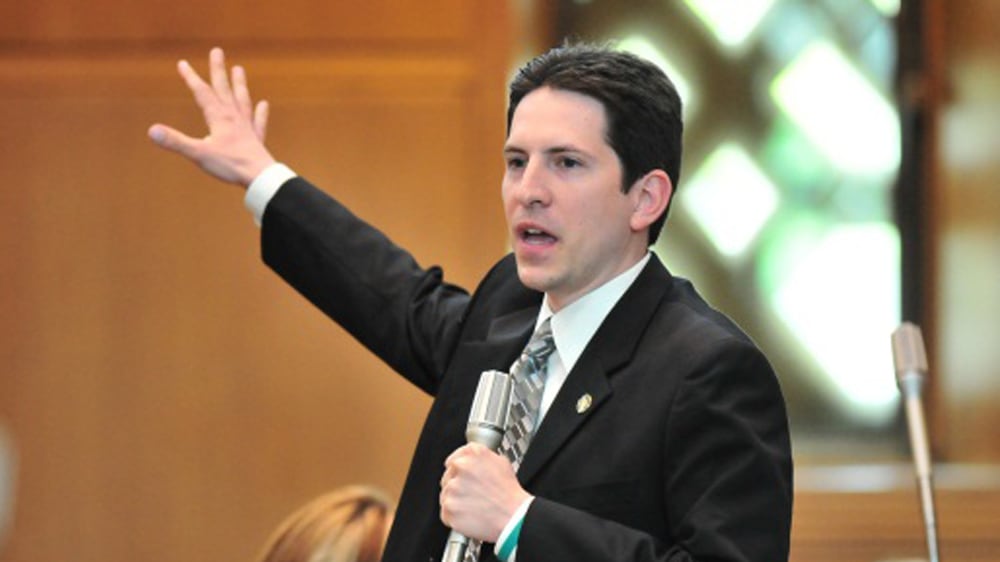The Oregon Supreme Court last week declined to hear an appeal by former state Rep. Matt Wingard (R-Wilsonville) of a lower court's dismissal of his defamation lawsuit against Oregon Right to Life.
The court's decision brings to a close—almost—the legal wrangling over political campaign mailers that Oregon Right to Life, the state's largest anti-abortion group, ran against Wingard in the 2016 House Republican primary in House District 26, which covers parts of Clackamas, Washington and Yamhill counties.
Wingard was attempting to make a political comeback in that contest. He'd won election in HD 26 in 2008 and risen to a leadership position as deputy minority leader in his two terms. But in 2012, WW reported that a legislative aide had accused him of providing her with alcohol and engaging in a sexual relationship with her when she was 20. The woman said Wingard pressured her into the relationship. He denied that.
Wingard did not seek re-election in 2012. When he decided to run again in 2016, Oregon Right to Life opposed him with the campaign mailer. After Wingard lost to now-state Rep. Richard Vial (R- Scholls), he sued the group for its mailers, which he said, "included false statements about [Wingard's] prior sexual relationship with a legislative aide."
A Multnomah County Circuit Court judge initially said the case could move forward. But when Oregon Right to Life appealed that decision, the Oregon Court of Appeals reversed the judge's ruling on Feb. 28 of this year.
Now that the Supreme Court has declined to hear Wingard's appeal, one final part of the case remains: Wingard faces a demand from Oregon Right to Life's attorneys for $235,000 in attorney's fees.
Oregon Right to Life originally responded to Wingard's lawsuit with what's called an anti-SLAPP motion ("SLAPP" stands for "strategic lawsuits against public participation"), arguing that Wingard was using the courts to quell legitimate political speech. The anti-SLAPP law requires a plaintiff (in this case, Wingard) to pay the attorney fees of the prevailing party. The court will now decide how much those fees should be.
"This is a great day for free speech in Oregon," Oregon Right to Life Executive Director Lois Anderson said in a statement. "The right to communicate freely with voters about candidates was upheld."
Wingard's attorney did not immediately respond to a request for comment.
